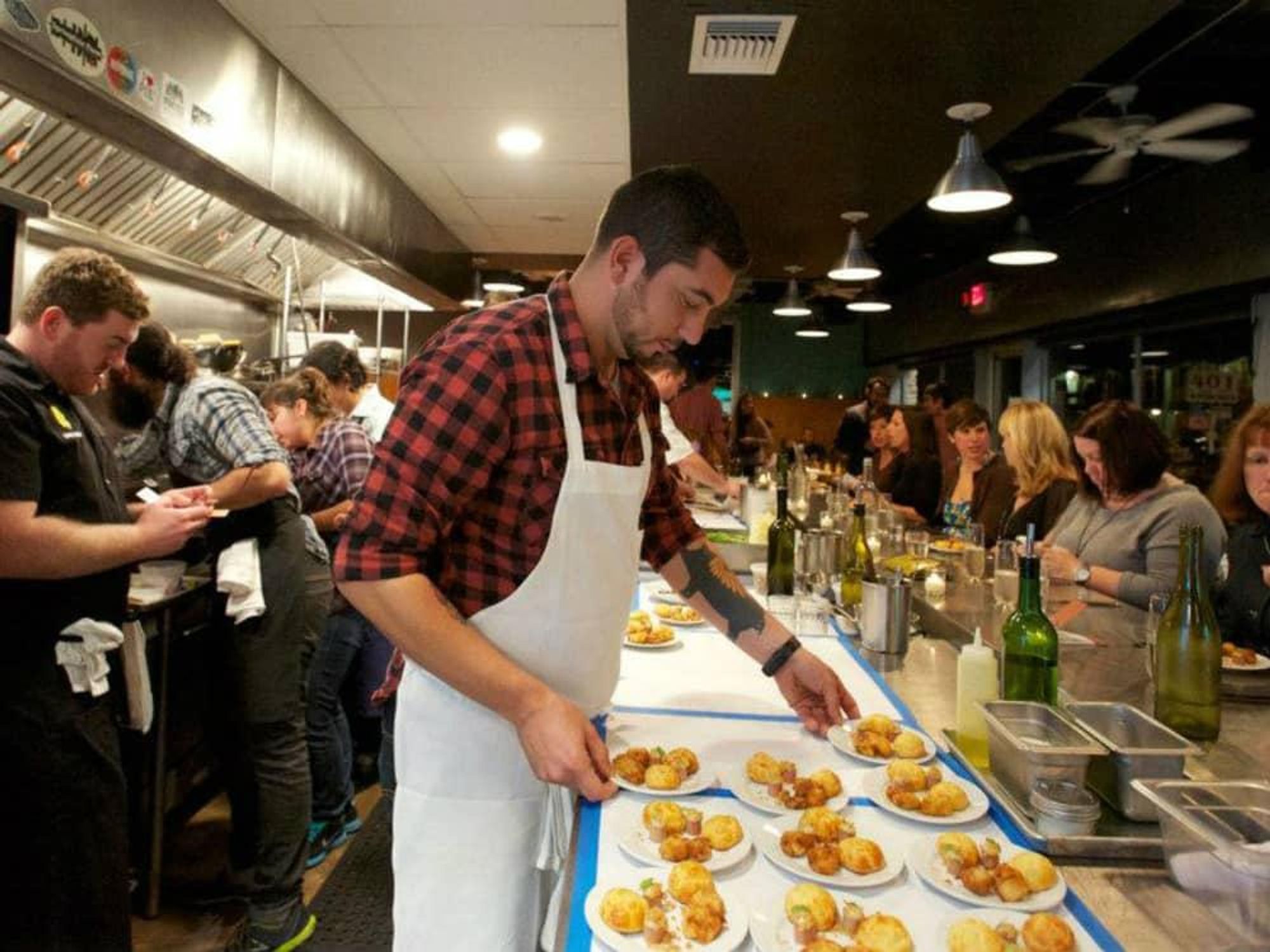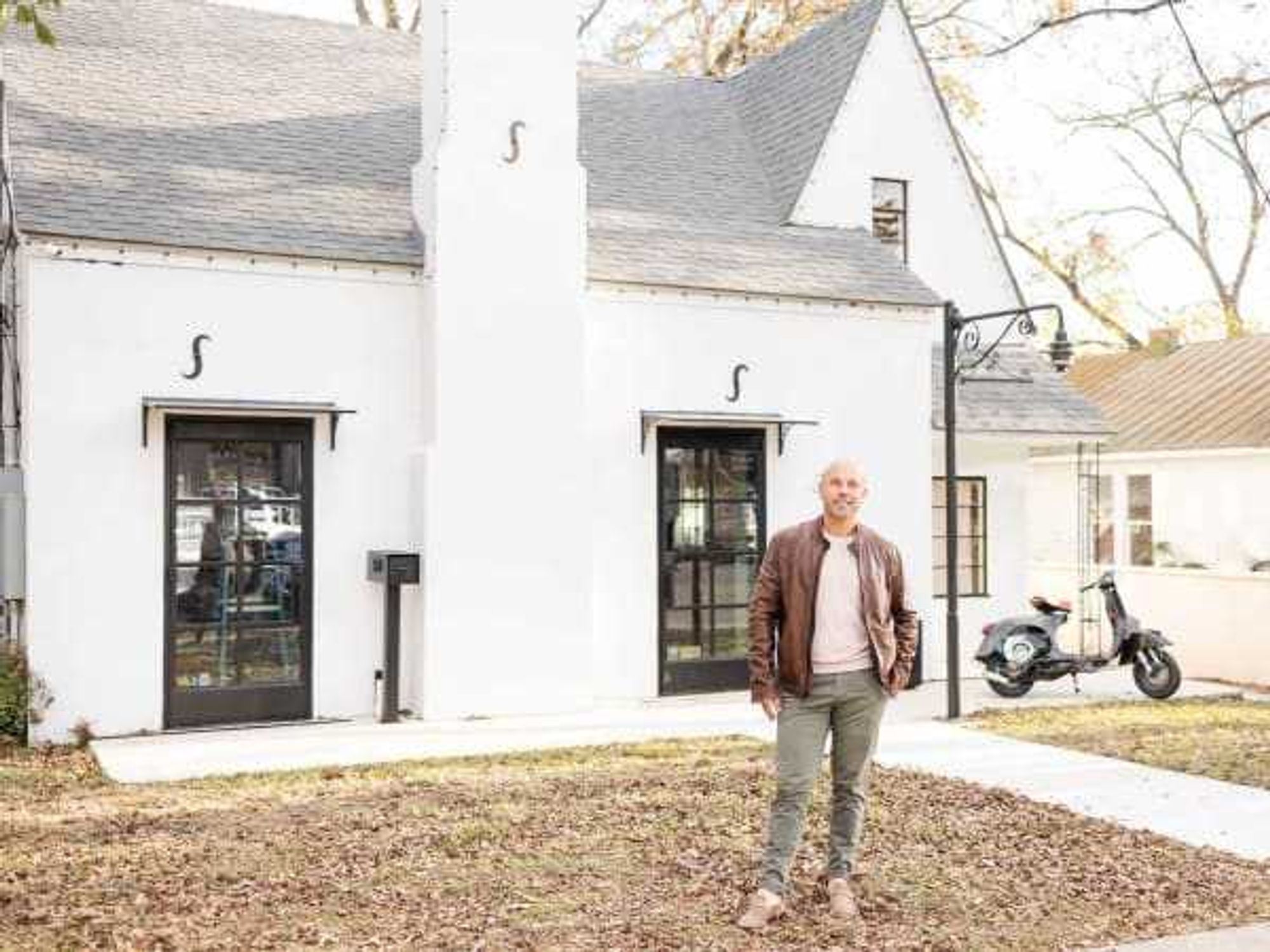Austin Chefs at SXSW
Austin's top chefs dish on the do-it-yourself culinary movement

A large crowd of food enthusiasts braved the rain and cold wind Saturday to huddle under the tent at The Blackheart and hear Austin chefs Ned Elliott of Foreign and Domestic, Paul Qui of Qui and East Side King, and Rene Ortiz and Laura Sawicki (of soon-to-open Launderette and Angry Bear) banter about the do-it-yourself culinary movement. The SXSW Interactive panel, moderated by Eater Austin Editor Megan McCarron, guided the chefs through a discussion of the advantages and pitfalls of being an independent chef/owner rather than part of a large restaurant group.
"DIY means freedoms and learning your boundaries," said Qui. "Even the freedom to fail. I don't get to just cook anymore. I had to learn about plumbing and permitting."
Sawicki agreed that when she and Ortiz decided to strike out on their own that they had to stretch beyond their culinary talents. "We know everything about the culinary aspect, so the DIY for us was learning the other parts of the business at our pace, on our terms. That's the exciting part for us." Ortiz chimed in with a grin, "Except for the fundraising. And, I will be accepting checks today."
"Or commit to it, which is an investment financially and in time," Qui countered. "We have four or five vinegars we are making in the restaurant, but they aren't good enough yet, so we use them for family meal and learn from them. We'll get them where we want them to be, but for now we eat them."
While there are challenges, all the panelists agreed that the benefits of being a chef/owner outweigh the hardships. "In the end, I want a place where I can go cook my food, my way, six days a week," said Elliott. "It's hard, but it's worth it."
